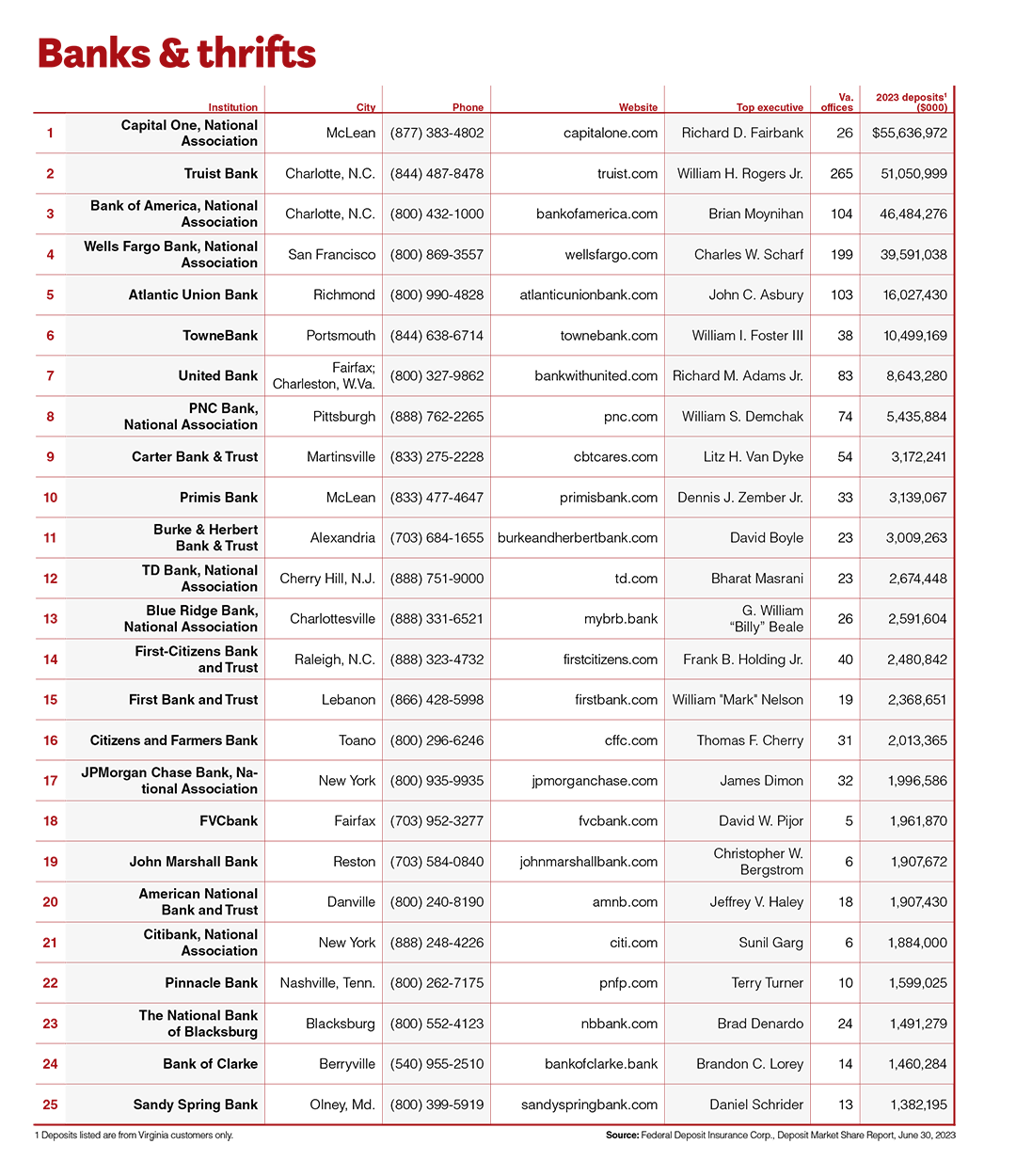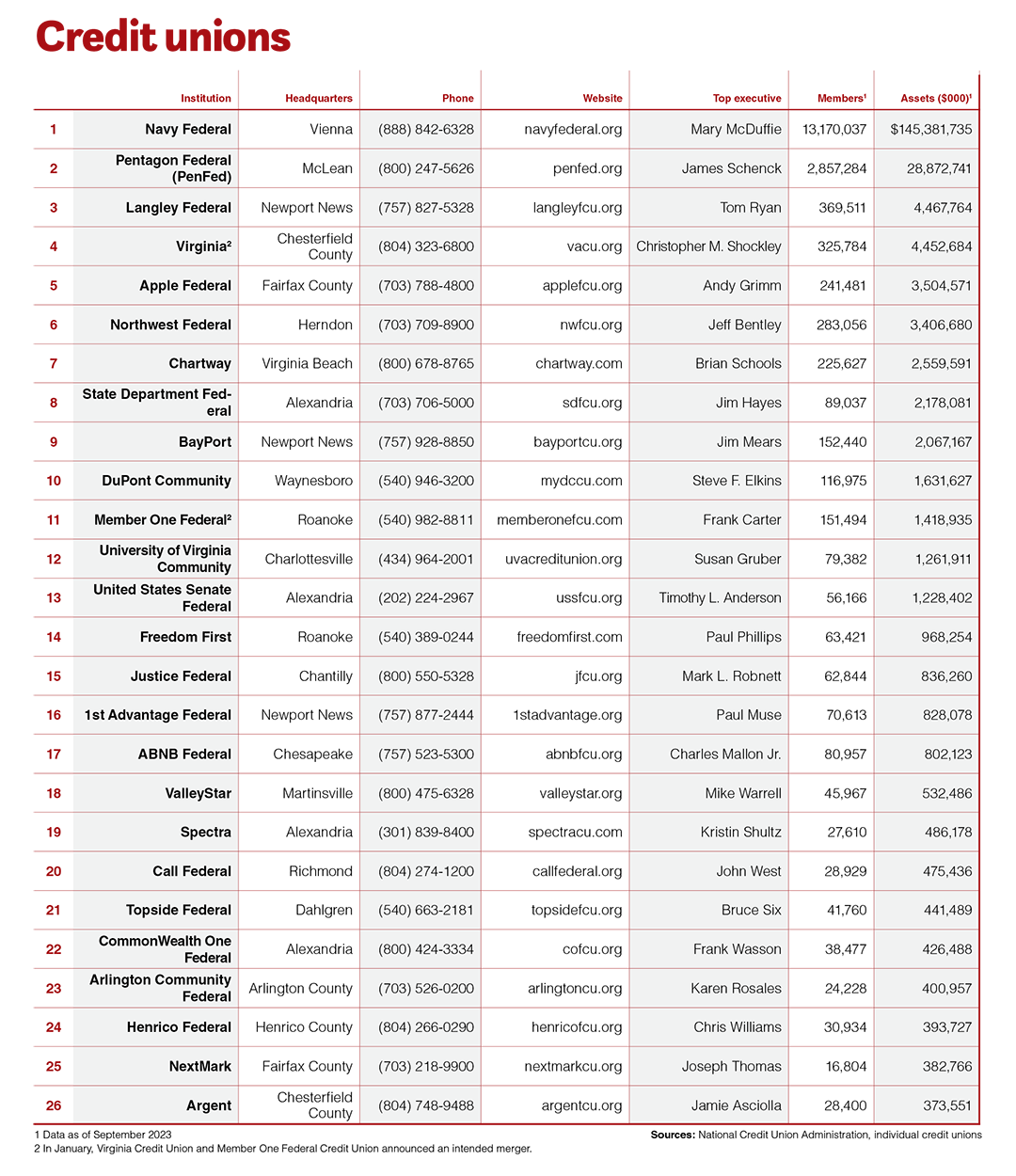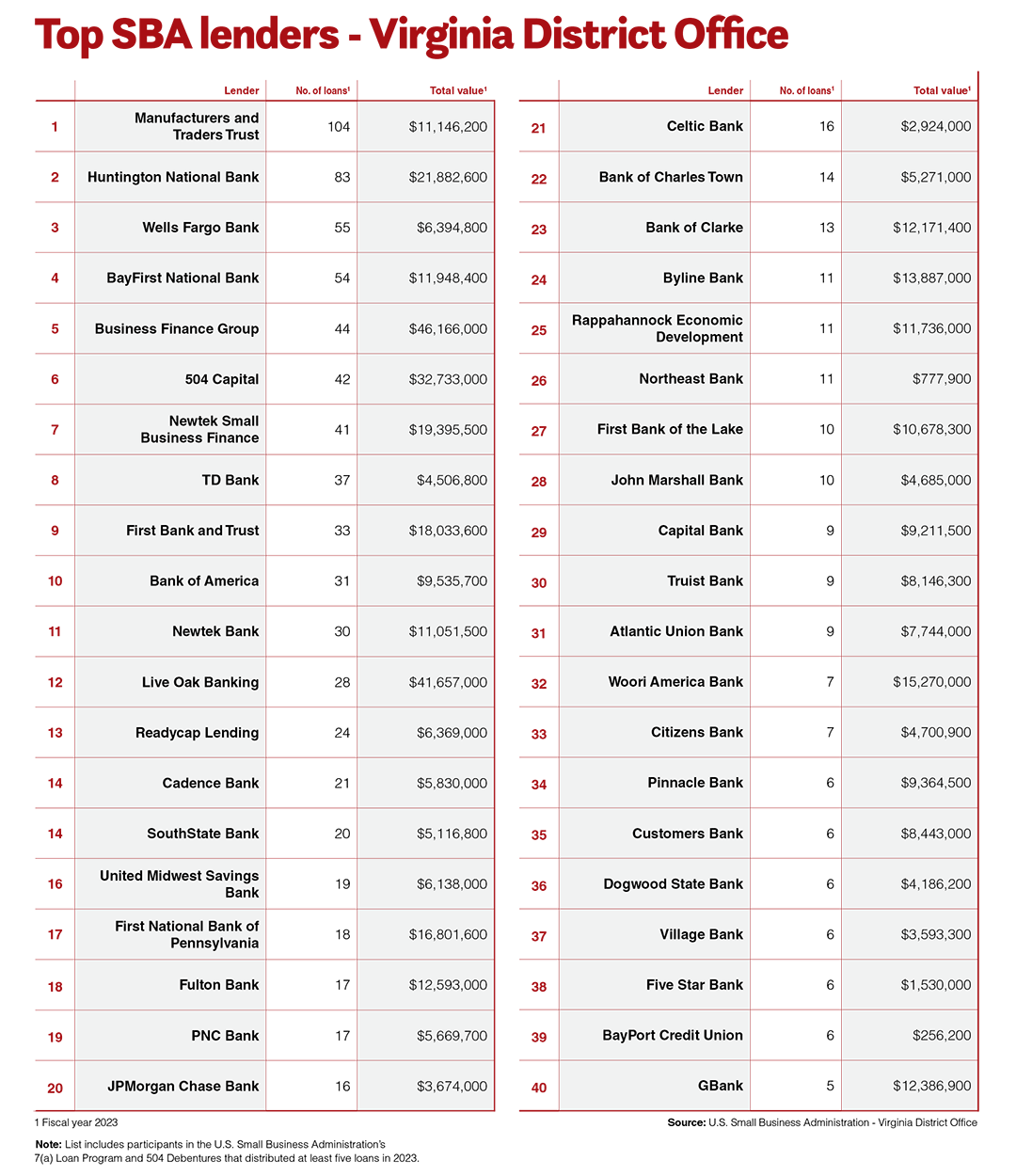Financial Services: Signs of health
Inflation, interest rates expected to decrease
Kate Andrews //February 28, 2024//

Federal Reserve Bank of Richmond CEO Tom Barkin speaks at the Virginia Bankers Association’s 2024 Financial Forecast. Photo courtesy Virginia Bankers Association

Federal Reserve Bank of Richmond CEO Tom Barkin speaks at the Virginia Bankers Association’s 2024 Financial Forecast. Photo courtesy Virginia Bankers Association
Financial Services: Signs of health
Inflation, interest rates expected to decrease
Kate Andrews //February 28, 2024//
What’s that we hear? Is the economy growing healthier?
It’s getting stronger for sure, Federal Reserve Bank of Richmond President and CEO Tom Barkin said in January during the 2024 Financial Forecast event co-hosted in Richmond by the Virginia Bankers Association and the Virginia Chamber of Commerce.
Inflation was 3.4% in December 2023, inching closer to the central bank’s goal of 2%. As always, the Fed‘s leaders are cautious in their wording, but in February, Chair Jerome Powell said the Federal Reserve expects to cut interest rates three times in 2024, starting in May.
Barkin, who serves this year on the powerful Federal Open Market Committee, which sets interest rates and monetary policy, noted in January, “Contrary to most predictions, the economy remains healthy.”
That represents a shift from the previous two years, when Fortune 500 companies’ executives took cover and prepared for a widely predicted recession that didn’t materialize — launching massive layoffs in many cases.
That’s not to say that businesses haven’t encountered several challenges in the past year — including high interest rates, high inflation, continuing supply chain challenges and wars in Gaza and Ukraine. In Virginia, home prices and demand continued to rise amid a tight market, making it difficult for Virginia millennials and Gen Zers to buy or rent. And that, in turn, has kept some businesses from finding employees, Barkin and the state commerce and trade secretary, Caren Merrick, noted during the November 2023 Virginia Governor’s Housing Conference in Hampton.
“We all know housing availability is limiting communities,” Barkin said, urging communities, employers and universities to work together to create more affordable housing.
Meanwhile, in a state where defense funding is crucial to financial outlooks for ports, the military and federal contracting, Congress neared the brink of a federal shutdown twice last year, something that hasn’t happened since 2018. In January, the U.S. House and Senate passed a third stopgap resolution to keep the government operating through March.
If a shutdown does occur, the impact would be harsh on Virginia, where more than 144,000 federal employees work, second only to California. In 2022, the Department of Defense spent $62.7 billion in Virginia — and based on the 2018-19 shutdown, it can take months for contractors to get paid.
Bob McNab, an Old Dominion University economist, notes that $4 out of every $10 generated in Hampton Roads comes from the federal government. If a shutdown occurs, “it is this perfect storm that would really undermine economic activity in Hampton Roads if it continued for a long period of time,” he says.
That said, right now, Virginia looks strong. Employment regionally has grown moderately, and the tight market has raised wages, according to the Federal Reserve’s Beige Book report released in late January.
In fiscal 2023, 2,520 people lost jobs in layoffs and closures reported by the Virginia Employment Commission, up slightly from the previous year, when 2,182 people were laid off, but a big improvement from fiscal 2021, when 12,281 people lost their jobs.
Factors like inflation, gas prices, job shortages in some fields and overall cost of living expenses have affected consumer sentiment negatively, however. According to McNab and fellow ODU economist Vinod Agarwal, recent consumer sentiment has been at the lowest point since the Great Recession of 2008, but they are hopeful that Virginians’ perceptions will align closer to the data. In February, the ODU economists’ 2024 state economic forecast predicted a third consecutive year of growth.
And with interest rates expected to decrease, it’s hoped moods will brighten in the commonwealth.
e




















